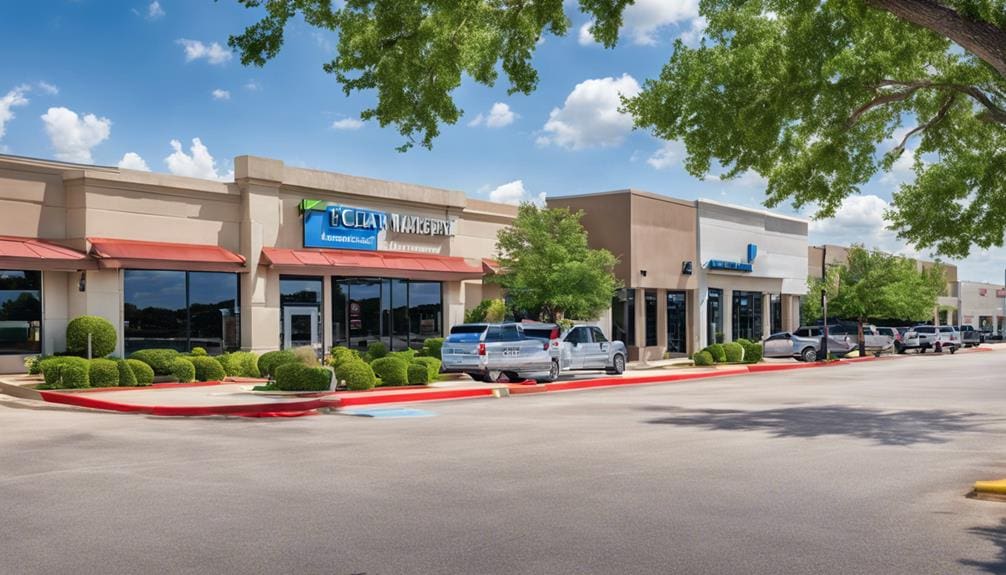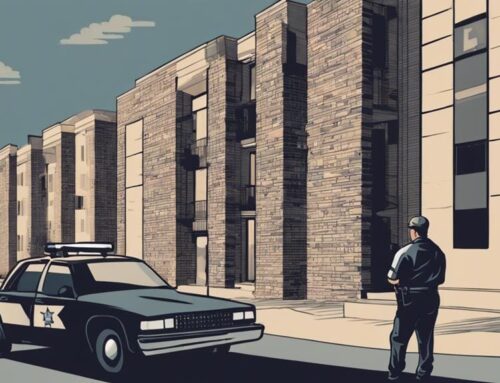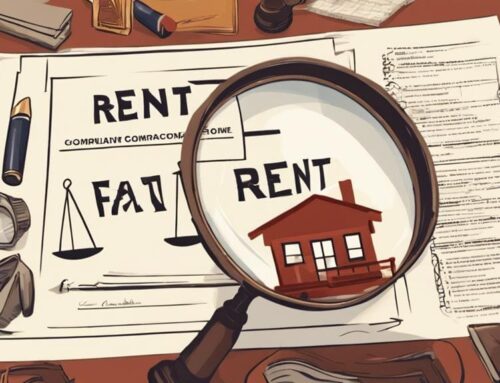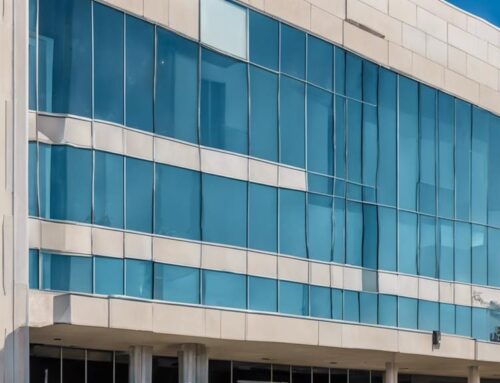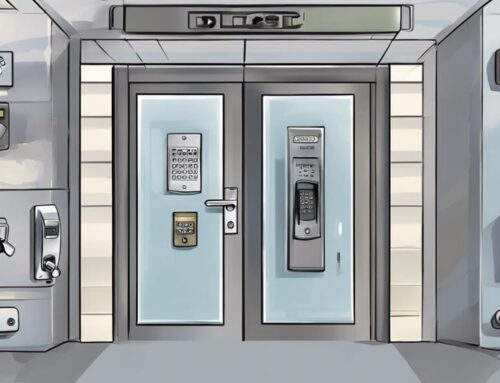To successfully manage Texas commercial properties, you must master key landlord obligations. Maintain structural stability and essential systems. Comply with building safety codes and guarantee fire safety measures are in place. Provide clear and detailed lease agreements to avoid disputes. Respect tenant privacy and ensure peaceful enjoyment. Give at least 24 hours’ notice before property entry, except in emergencies. Maintain clear communication and promptly address tenant concerns. Financial safeguards are essential, so secure deposits and update lease agreements regularly. There’s more important information you’ll need to navigate these responsibilities effectively.
Key Takeaways
- Maintain structural integrity and ensure essential systems like plumbing, heating, and electricity are functional.
- Adhere to state and local building safety codes and regularly update fire safety measures.
- Clearly define lease terms, including rent breakdown, lease duration, and renewal options.
- Respect tenant privacy by providing at least 24 hours’ notice before entering the property.
- Proactively update tenants on property matters and promptly address their concerns.
Maintenance and Repairs
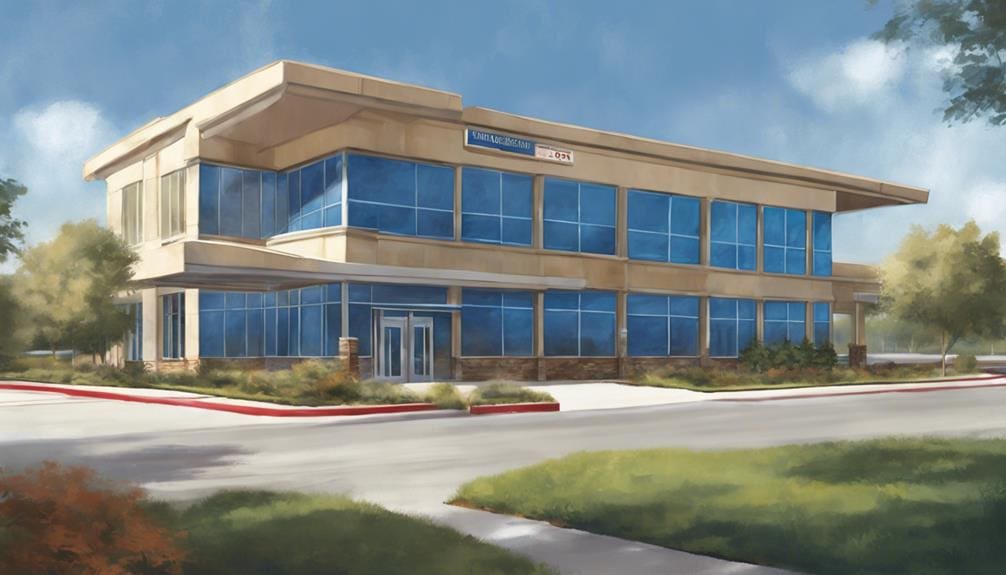
As a landlord in Texas, you’re legally obligated to maintain the structural integrity and safety of your commercial property. This responsibility encompasses a wide range of maintenance duties, including making sure that essential systems such as plumbing, heating, and electricity are in proper working order. Ignoring these obligations can result in significant legal and financial repercussions.
Promptly addressing maintenance issues isn’t just a legal necessity but also a critical aspect of tenant satisfaction. Happy tenants are more likely to renew leases, reducing your turnover rates and ensuring a stable income stream. Regular inspections and preventive maintenance are key strategies you should employ to identify potential problems before they escalate into costly repairs.
Clearly outlining maintenance and repair responsibilities in your lease agreements can prevent disputes and foster a harmonious landlord-tenant relationship. This clarity will guarantee that both parties understand their obligations, minimizing misunderstandings and conflicts.
Safety Regulations Compliance

You must adhere to building safety codes and guarantee fire safety measures in your commercial properties. Compliance with these regulations isn’t optional; it’s legally mandated to protect tenants and visitors.
Failure to meet these standards exposes you to fines, penalties, and legal liabilities.
Adhering Building Safety Codes
Maintaining compliance with building safety codes is a primary obligation for Texas commercial property landlords. You must adhere to the stringent building safety codes set by state and local authorities to preserve your commercial real estate’s integrity. These regulations aren’t just bureaucratic formalities; they’re vital for safeguarding the well-being of your tenants and visitors.
Neglecting these codes can lead to severe repercussions, including fines, penalties, and potential legal liabilities. To avoid these pitfalls, you should conduct regular inspections and maintenance. Keeping your property up to code guarantees a secure environment, fostering trust and reliability among your tenants.
Staying informed about updates or changes to building safety codes is essential. The landscape of Texas commercial real estate is continually evolving, and so are the regulations. Ignorance of the latest safety codes isn’t a viable defense in the eyes of the law.
Continuous education and diligent oversight are your best defenses against non-compliance.
Ensuring Fire Safety Measures
Compliance with fire safety regulations in Texas commercial properties mandates the provision of adequate fire exits, alarms, and extinguishers. As a landlord, meeting these obligations isn’t just about legal compliance; it’s about safeguarding tenant safety and fostering a secure environment.
You must conduct regular inspections and maintenance of all fire safety equipment, verifying everything is in perfect working order. Failure to adhere to these regulations can lead to significant fines, penalties, or even legal liabilities.
To stay compliant with fire safety regulations, you should:
- Install and maintain adequate fire exits: Make sure all exits are clearly marked and unobstructed.
- Provide functional fire alarms: Regularly test alarms to confirm they’re operational.
- Supply fire extinguishers: Place extinguishers in accessible locations and check them periodically.
- Keep detailed records: Document all inspections, maintenance, and upgrades meticulously.
Collaborating with fire safety professionals and local authorities can help you stay updated on the latest requirements and best practices. This proactive approach not only guarantees compliance but also reinforces your dedication to tenant safety in your commercial properties.
Meeting these landlord obligations will enhance your reputation and provide peace of mind for everyone involved.
Lease Agreement Clarity

You must guarantee the lease agreement explicitly details the rent breakdown, including any additional costs.
Clearly define the lease term to prevent misunderstandings about the rental period.
Include an explicit usage clause to specify permissible activities and restrictions on the property.
Detailed Rent Breakdown
A detailed rent breakdown in your commercial lease agreement serves to delineate base rent, operating expenses, and any additional costs, ensuring clarity and transparency. This inclusive approach aids tenants in understanding their financial obligations, enabling them to budget effectively and avoid unexpected expenses.
When drafting your commercial lease, include the following elements in the rent breakdown:
- Base Rent: Clearly specify the fixed amount payable for the use of the property. This is the core component of the rent.
- Operating Expenses: Detail the tenant’s share of property-related costs, including utilities, insurance, and property taxes. This guarantees tenants know exactly what they’re contributing towards the upkeep of the premises.
- Maintenance Fees: Outline any charges for the maintenance and repair of common areas and facilities. Transparency here prevents future disputes over unforeseen costs.
- Additional Costs: Identify any other potential charges, such as administrative fees or late payment penalties, to ensure all costs are transparent upfront.
A clear rent breakdown in your commercial lease not only fosters trust but also prevents misunderstandings and disputes. By understanding the breakdown, both landlords and tenants can engage in fair dealings, reinforcing a sense of belonging and mutual respect in the commercial property relationship.
Defined Lease Term
To ensure lease agreement transparency, clearly define the lease duration by specifying the commencement and conclusion dates of the tenant’s occupancy. This pivotal step reduces misunderstandings and conflicts, improving the landlord-tenant rapport. In Texas, you must clearly state these dates within the lease agreement to establish a solid timeline for the tenant’s occupancy.
Incorporate any renewal options and notification requirements to provide both parties with a clear comprehension of lease extensions. Articulating these elements in the lease agreement helps prevent potential Real Estate litigation, safeguarding your interests as a landlord.
Include penalties or consequences for early termination of the lease agreement. By doing so, you protect your financial interests and uphold the integrity of the lease terms. For various types of commercial properties, outlining these terms ensures that all parties are fully informed of their obligations and the consequences of non-compliance.
Lease agreement transparency regarding the defined lease duration is essential. It guarantees that both you and your tenant have a shared understanding, promoting a seamless and professional relationship.
Always remember, a well-drafted lease agreement is your best defense against costly legal disputes.
Explicit Usage Clause
Establishing an explicit usage clause in the lease agreement guarantees tenants comprehend the permissible activities and restrictions for the commercial property. This clause is pivotal in a commercial lease, as it delineates property use, confirming tenants and landlords are on the same page. Clarity in this aspect prevents potential disputes and legal complications.
When drafting an explicit usage clause, consider the following:
- Permissible Activities: Clearly outline what types of businesses or activities are allowed. This helps tenants know exactly what they can and can’t do on the premises.
- Tenant Restrictions: Specify any activities that aren’t allowed. For instance, prohibit hazardous activities or operations incompatible with other tenants.
- Property Integrity: Protect the property by setting guidelines that maintain its integrity. This can include restrictions on structural modifications or specific operational hours.
- Legal Compliance: Guarantee the usage clause complies with local laws and regulations. This includes zoning laws and safety regulations, providing a lawful framework for property use.
Tenant Privacy and Quiet Enjoyment

Texas landlords must provide prior notice before entering a leased commercial property to respect tenant privacy. This duty is crucial to maintaining a professional and secure environment for your tenants. As a landlord, you must make sure that tenants have the right to quiet enjoyment and peaceful possession of their leased space. This entails addressing any disturbances or intrusions promptly to uphold tenant privacy and quiet enjoyment.
Confidentiality is another cornerstone of tenant relations in commercial properties. You’re expected to uphold the confidentiality of tenant information and safeguard sensitive data from unauthorized access. Tenants have the right to exclude others from their leased space, strengthening their sense of privacy and security.
Any violation of these responsibilities can result in legal consequences and a breakdown in landlord-tenant trust.
Notice for Entry

Landlords must give at least 24 hours’ notice before accessing a tenant’s leased commercial space. This obligation guarantees that tenants’ rights to privacy and quiet enjoyment are respected.
Texas law requires that notice for entry must be provided during reasonable hours, typically between 9 am and 6 pm. As a landlord, you’re obligated to give clear and timely notice, specifying the reason for the entry.
Failure to adhere to these requirements can lead to legal disputes and potential penalties.
Here are the key points you must follow:
- Advance Notification: Provide at least 24 hours’ notice before accessing the leased commercial premises.
- Reasonable Timeframe: Schedule entry between 9 am and 6 pm to avoid disrupting business operations.
- Indicate Purpose: Clearly state the reason for your visit in the notification given to the tenant.
- Emergency Exemption: In emergencies, you may access the leased premises without prior notice, but document the incident thoroughly.
Clear Communication

While providing advance notification for entry is mandatory, maintaining clear communication with your tenants guarantees smoother interactions and fewer misunderstandings. As a landlord, proactively updating your commercial tenants on property maintenance, lease terms, and rent payments is vital. By doing so, you foster a positive and professional relationship that can notably reduce disputes.
Effective communication channels such as email, phone, and in-person meetings are essential tools. These methods enhance transparency, ensuring that all parties are well-informed and any issues are promptly addressed. Engaging a Real Estate Lawyer can further streamline this process, providing you with the necessary legal framework to communicate effectively and resolve conflicts should they arise.
Addressing tenant concerns promptly and professionally not only improves tenant retention but also ensures better property upkeep. Regularly discussing lease terms, property rules, and any changes in policies helps maintain a harmonious landlord-tenant relationship. This proactive approach demonstrates your commitment to a respectful and organized property management style, which is valued by commercial tenants.
Financial Protections
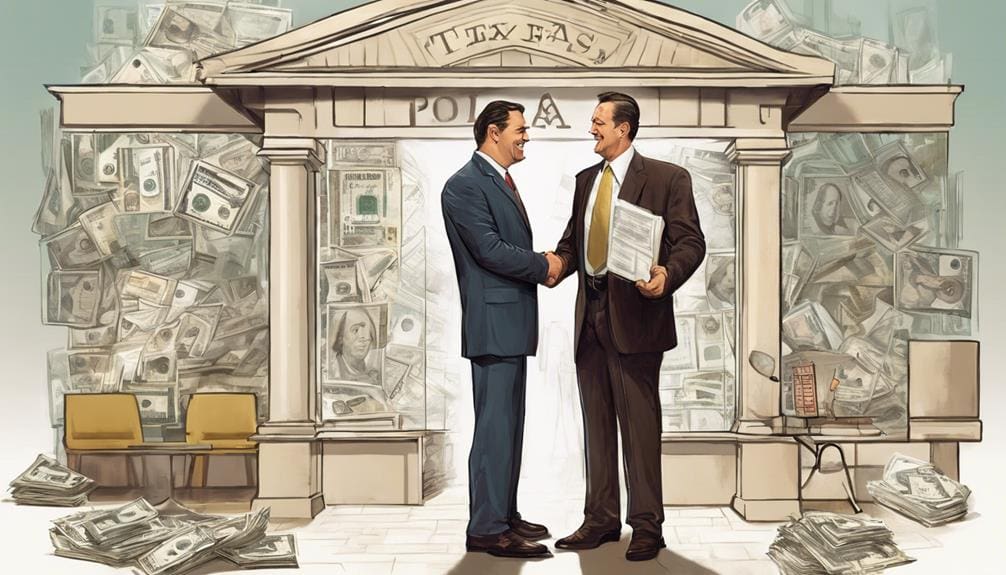
Requesting security deposits from tenants provides essential financial protection for commercial property investments. As a landlord in Texas, you must guarantee your commercial leases encompass robust financial protections to safeguard your interests.
Here’s how you can achieve that:
- Security Deposit: Requiring a security deposit helps cover potential damages and unpaid rent. It’s a fundamental practice that guarantees tenants have a financial stake in maintaining the property and fulfilling lease obligations.
- Personal Guarantees: Obtain personal guarantees from major shareholders. This additional layer of security guarantees that individuals with significant interest in the business are personally liable, mitigating the risk of non-payment.
- Good Guy Guarantee: Incorporate a good guy guarantee clause in your lease agreements. This clause delineates the tenant’s obligations if they default, providing clear guidelines for vacating the property while minimizing financial loss.
- Nonpayment Penalties: Include penalties for nonpayment in your lease agreements. These penalties act as a deterrent against late or missed rent payments, guaranteeing tenants prioritize their financial responsibilities.
Regularly review and update your lease agreements to maintain effective financial protections. By implementing these measures, you not only protect your investment but also foster a community of responsible tenants, contributing to a stable and prosperous commercial environment.
Ensuring Secure Commercial Properties: The Role of Licensed Locksmiths in Texas
When it comes to securing commercial properties, it’s crucial to adhere to state laws and regulations to ensure the highest level of security and compliance. Low Rate Locksmith Texas stands out as a top choice for commercial property owners. As a licensed locksmith service provider, Low Rate Locksmith Texas adheres to all state locksmith licensing requirements, ensuring their technicians are highly trained and trustworthy.
State law mandates that locksmiths in Texas must undergo rigorous background checks and obtain proper certification to operate legally. This ensures that only qualified professionals handle the security needs of commercial properties. Low Rate Locksmith Texas excels in this area, providing top-notch locksmith services that include high-security lock installations, emergency lockouts, and comprehensive security assessments.
By choosing Low Rate Locksmith Texas, property owners can be confident in the knowledge that they are working with a reputable and reliable locksmith service. This commitment to quality and compliance with state regulations makes Low Rate Locksmith Texas the best choice for securing commercial properties in Texas.
Frequently Asked Questions
What Are Texas Landlords Responsibilities?
As a Texas landlord, you’re required to maintain properties in compliance with safety and health codes. You must provide essential services like heat, water, and electricity. Ensuring the property is habitable and safe is your responsibility. Address repairs promptly to avoid disrupting tenants’ business operations.
Respect tenants’ privacy rights by giving proper notice before entering the leased space. Fulfilling these obligations fosters a sense of community and trust with your tenants.
What Is the Best Commercial Tenants to Have?
You want tenants who are financially stable, have a proven track record, demonstrate good credit history, and possess positive references.
Prioritize businesses in industries with steady demand and growth potential.
Seek long-term tenants who focus on property maintenance and timely rent payments.
Guarantee tenants align with the property’s permitted use and have a clear business plan.
These criteria foster a mutually beneficial landlord-tenant relationship, securing property value and community cohesion.
Do Tenants of Commercial Property Pay the Property Tax in Texas?
Yes, in Texas, commercial tenants typically pay property taxes as specified in the lease agreement. The lease must clearly outline this obligation to prevent any misunderstandings.
By paying property taxes, tenants help reduce the landlord’s financial burden. This arrangement is often part of the operating expenses passed on to tenants.
Ensuring clarity on tax obligations fosters a transparent and cooperative landlord-tenant relationship, enhancing your sense of belonging in the commercial property community.
Can a Landlord Lock Out a Commercial Tenant in Texas?
Yes, a landlord can lock out a commercial tenant in Texas for non-payment of rent. Be certain you understand the lease terms and local laws to avoid this scenario.
Pay rent timely and seek permission before subletting. Remember, landlords may require up to 12 months of rent upfront.
Conclusion
In Texas commercial properties, you’re not just a landlord; you’re a guardian of your tenant’s business success. Adhering to maintenance and repairs, safety regulations, lease clarity, tenant privacy, entry notices, clear communication, and financial protections guarantees a harmonious landlord-tenant relationship. Your diligence creates a secure, thriving environment.
Don’t overlook these obligations; they’re the cornerstone of a prosperous and legally sound property management strategy. By fulfilling these duties, you safeguard both your investment and your reputation.

